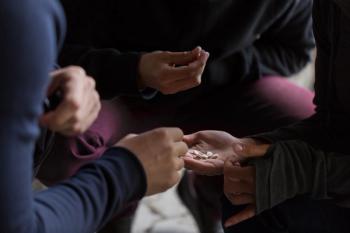
How mental health programs can impact symptoms in pediatric patients
In this Q&A, Anne Bird, MD, discusses the results of a recently published study observing the impact Rady Children's Hospital's new mental health program has had on their patients and mental health symptoms.
In this Q&A, Anne Bird, MD, discusses the results of a recently published study observing the impact Rady Children's Hospital's new mental health program has had on their patients and mental health symptoms.
Bird is the medical program director of Behavioral Health Integration at Rady Children's Hospital-San Diego and an associate clinical professor at UC San Diego School of Medicine.
Contemporary Pediatrics®: Can you explain Rady Children’s mental health program? How does it aim to improve mental health care among young patients?
Anne Bird, MD: Rady Children’s Hospital has implemented a whole-child continuum of care from prevention and early intervention to outpatient services, crisis care, and inpatient hospitalization. By implementing mental health integration in this continuum, we provide our patients with the right mental health care at the right time and place.
Rady Children’s Primary Care Mental Health Integration (PCMHI) program blends elements of primary care behavioral health and collaborative care to form a highly effective integrated treatment model to address child and adolescent mental health. Our interdisciplinary, team-oriented, whole-child care is created by embedding integrated health therapists (IHTs) in Rady Children’s affiliated primary care sites and allowing them to meet patients through same-day warm handoffs from primary care providers. IHTs provide brief, evidence-informed therapies, while higher acuity cases are referred to our integrated care mental health hubs.
The PCMHI model also provides psychiatry and care coordination services. The goal of this model is to increase timely access to evidence-informed mental health care for children, foster early identification and prevention of common childhood mental health conditions, increase mental health education for participating primary care providers, and ensure a fiscally sustainable model. Although we have successfully implemented this program on a small scale, we are intent on expanding the program to benefit all our patients.
Contemporary Pediatrics®:What were some of the top highlights from the study?
Bird: The efficacy of our program is well-represented in our patient data. Measurement-based care data indicate that patient response to therapy has resulted in a 44% reduction in anxiety symptoms as measured by the GAD-7 and a 62% decrease in depression symptoms as assessed by the PHQ-9. Since the program launched in June 2020 through March 2024, there have been 42,263 patient visits for 8,645 unique patients. Results of the study were published in the
Contemporary Pediatrics®: What was the most interesting finding of the study?
Bird: Rady Children’s PCMHI program produces positive outcomes not only for our patients, but their primary care providers as well. Prior to PCMHI, many providers strongly disagreed that their patients had timely access to behavioral health care. After program implementation, provider ratings on this measure increased significantly. Primary care provider responses have also revealed their strong belief in mental health integration and its ability to increase their capacity to treat their patients more effectively and ease their workload.
Contemporary Pediatrics®: Following these results, what should HCPs walk away with? If interested, how can other HCPs start implementing these methods into their own practice or hospital system?
Bird: It is important to grasp the urgency with which we need more effective, accessible mental health treatment for youth. Inter-disciplinary team-based integrated care has been shown to be a successful, accessible, and cost-effective treatment model. However, challenges to implementing PCMHI include provider, clinic, and systems-level factors. Successful implementation of an integrated care program, with elements of Primary Care Behavioral Health and Collaborative Care that spans multiple healthcare agencies, requires a commitment to working with all stakeholders to deliver the right type of care at the right time for your mutual patients. Further information about implementing our program that may be helpful to others is available on our website
Newsletter
Access practical, evidence-based guidance to support better care for our youngest patients. Join our email list for the latest clinical updates.






